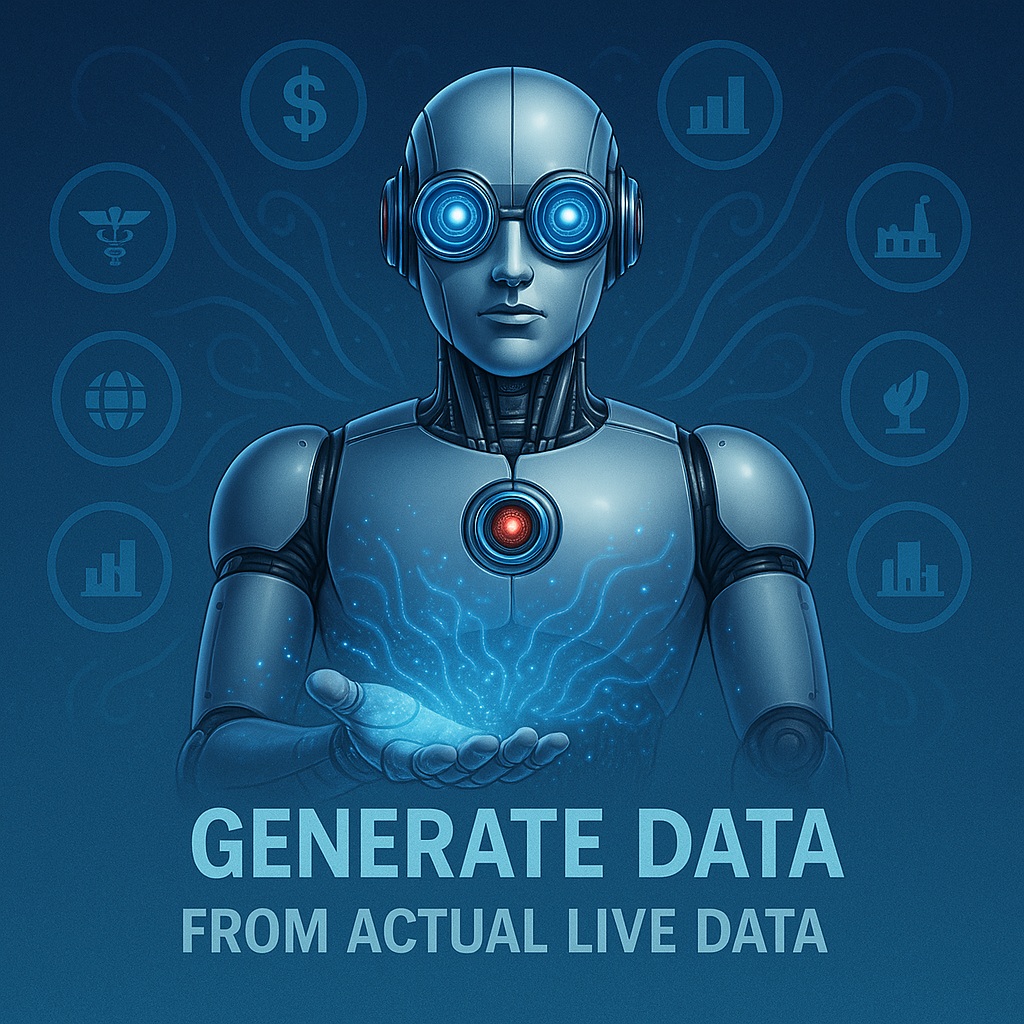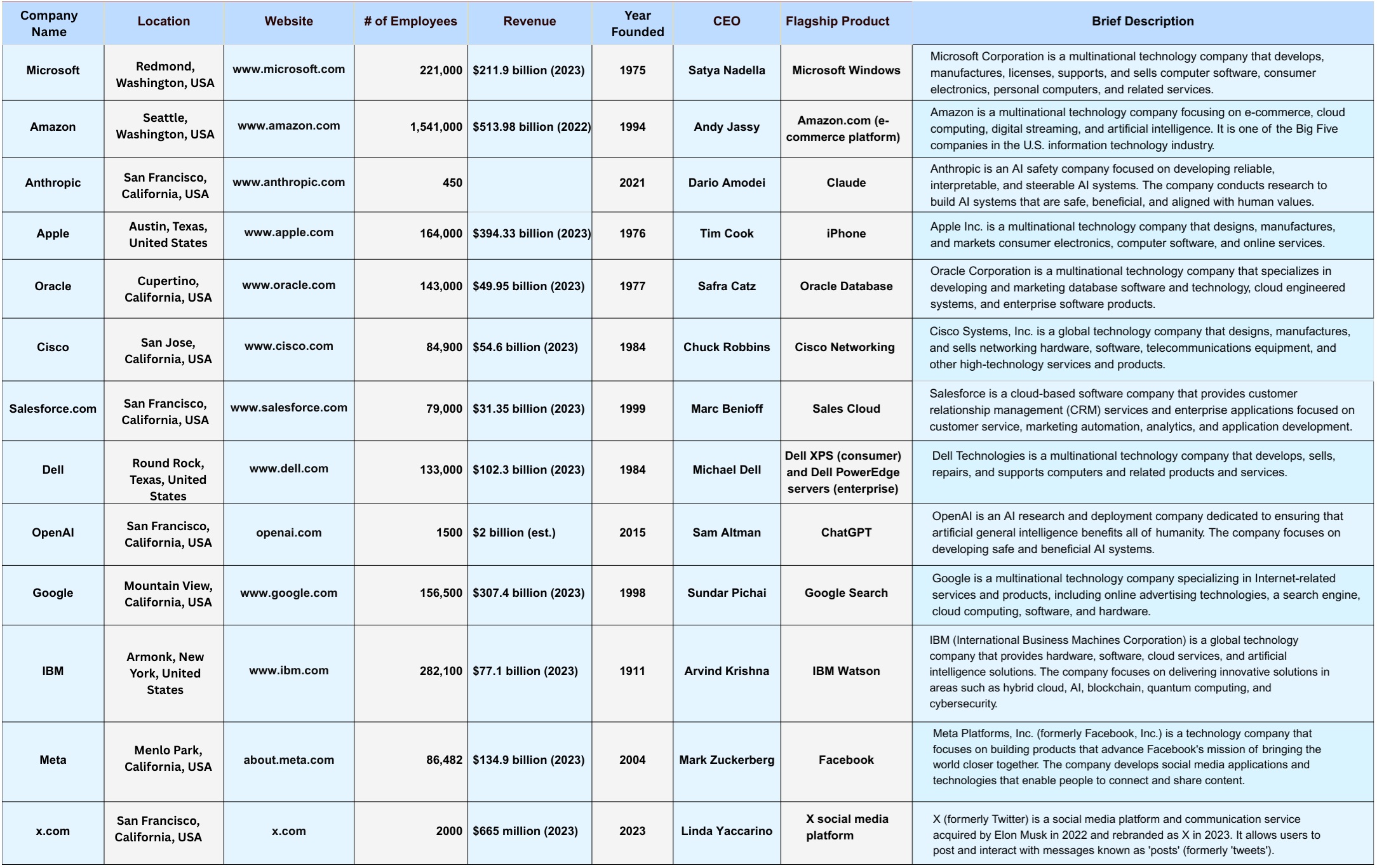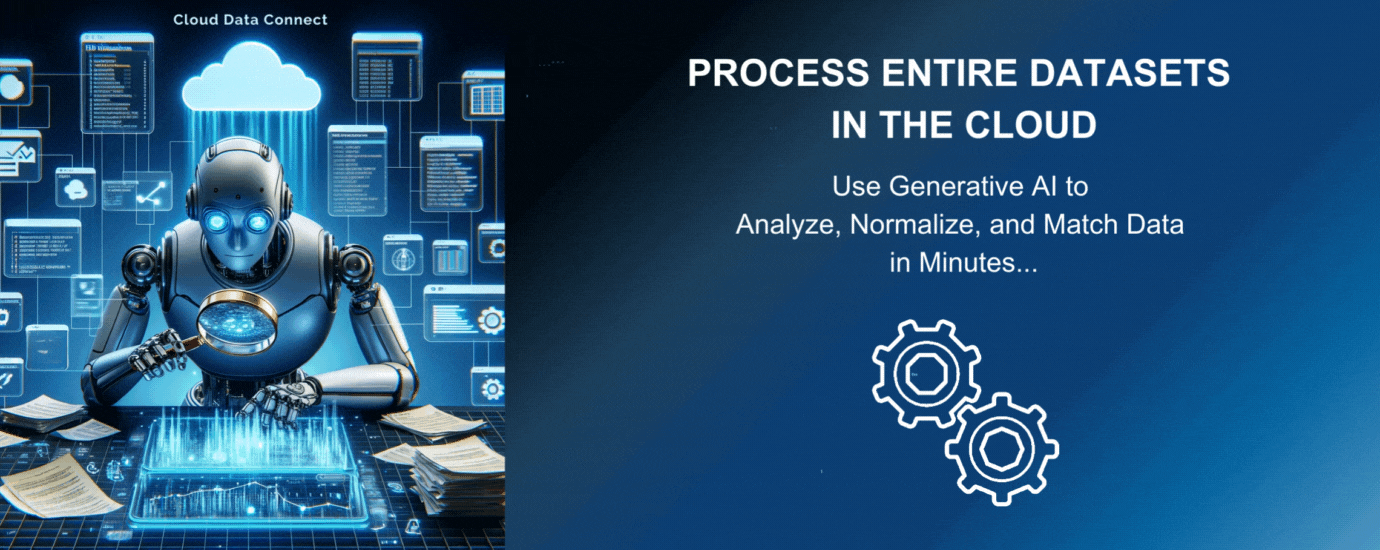AI-Powered Data Quality, Matching, Standardization, Enrichment, and Creation for Datasets, Databases, and Files
Connect, analyze, match, normalize, generate, enrich, and optimize to higher levels of data quality, data accuracy, data usability, and data ROI with just a few clicks - all on our highly-performant parallel processing architecture

Company Name, Individual Name, and Street Address Matching plus Data Enrichment
Check out the AI-driven APIs at the core of this Cloud Data Connect offering - see how we quickly identify inconsistent, redundant, and otherwise problematic data in your datasets with Single Value APIs as well as the Full Dataset APIs that leverage our high-speed, parallel processing architecture.
Explore Interzoid's AI-Powered Data Matching APIs
AI Data Enrichment Agent: Retrieve Customized, Real-World Data on Demand as Defined by You
Get whatever real-world information you need and append it to your existing data using AI - ideal for marketing, CRM, analytics, AI model building, and anywhere else where more comprehensive data adds more ROI.
Learn More About Creating Datasets on Demand...Also Available via API Interface
Incorporate these full dataset, batch-like capabilities as part of your workflow, data pipelines, ETL/ELT, data ops, and more using a simple REST/JSON-based integration of our APIs - all at high speeds on our parallel-processing platform.
Explore the AI-Powered Batch APIVideo Demo
Check out a brief demo video of the AI Data Enrichment Agent retrieving real world-data as defined by you, creating a CSV or TSV text file that you can open in other applications like Microsoft Excel, Google Sheets, Analytics tools, etc. - all quickly and easily.
View TutorialNo Code Batch Data Web Application
Use our high-performance, parallel-processing platform to call any of our APIs using a source text file for enriching and appending new columns as provided by the chosen API - Get results in seconds.
Start NowBelow is just one example showing how our AI Data Enhancement Agent transformed a simple list of company names into a comprehensive business intelligence dataset based on user-defined data needs (data elements could have been anything):

Ready to Get Started?
Experience the power of Cloud Data Connect, our APIs, and AI Data Enrichment Agents today. Sign up for an account with trial usage, and get your API Key - used to track usage for all of our APIs and products. Start optimizing your data for higher quality, accuracy, usability, and value!
Create Your AccountFrequently Asked Questions
What is a similarity key, and how is it used in data matching?
A similarity key is an identifier used to group similar data entries, aiding in the detection of duplicates or inconsistencies within or across datasets, thereby facilitating data normalization and deduplication.
What algorithms or technologies power the batch data Cloud application?
Behind the scenes, the Web application employs our SmartMatchAI technology, which leverages Generative AI-enhanced algorithms, Machine Learning, data content type-specific advanced algorithms, relevant knowledge bases, and more to optimize the data matching processes.
How does Interzoid's pricing model work?
Interzoid uses a credits-based system, where each API call deducts a credit from your balance. You will need an API call to process each record in a file. Credits are purchased either pay-as-you-go, or monthly and annually, with annual subscriptions offering a cost benefit.
What is an API key, and why do I need it for the Web application?
An API key acts as a license key that you register for, tracking usage and providing authentication for the user. It is essential for accessing and utilizing the Web application's features securely.
How can the Web application aid in improving data quality?
By identifying duplicate, inconsistent, or non-normalized data, the Web application helps users enhance data accuracy, reliability, and usability, contributing to better data management practices.
Can I use the Web application for company, addresses, product, and individual name matching?
Yes, the Web application is equipped to handle company and individual name matching, utilizing its algorithms to identify and group similar names efficiently.
How can I incorporate the functionality of the Web application into my existing data pipeline?
Users can integrate the Web application functionality into their data pipelines through APIs, enabling automated data quality checks and improvements within their established data processing workflows.
